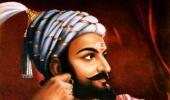'Aurangzeb, who had destroyed the Hindu temples of Mathura and Kashi and many others in the north, was a very different ruler when he came to Maharashtra.'
'He did not touch a single temple in Maharashtra.'
'It was possibly the greatest triumph of Shivaji's statesmanship,' notes Colonel Anil A Athale (retd), the well known military historian.
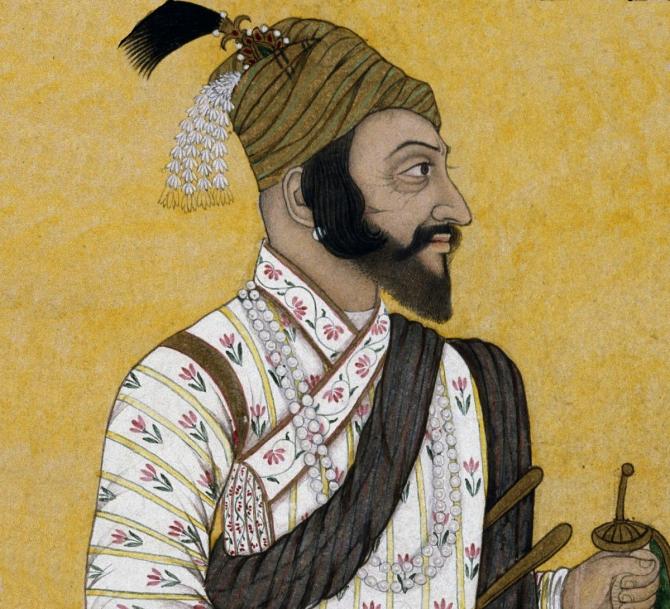
As we celebrate the 392nd birth anniversary of Shivaji the Great on February 19, it is time to reflect on his many-faceted personality.
Shivaji's military exploits are well known. His victory in the decisive battle of Pratapgad, which in one stroke shattered the sultanate of Bijapur or his commando raid on Shahista Khan, is the stuff of military legend.
His visionary revival of the navy and laying the foundations of Hindavi Swarajya are feats that are well remembered.
But his statesmanship in how he successfully dealt with the communal divide is of particular relevance today.
Above all, he was a statesman such as was not born in India for a long, long, time.
India in the 75th year of its Independence is still grappling with the 'Muslim Question' as the latest hijab controversy has shown.
Even a cursory reading of the history of 20th century shows that right from the 1920s, politics in India revolved around the question of relations between two main religious communities in India.
In 1947, it was thought that the issue was resolved with the separation of Muslim majority areas into a separate nation, Pakistan.
The persistence of the problem shows that separation has not solved the problem.
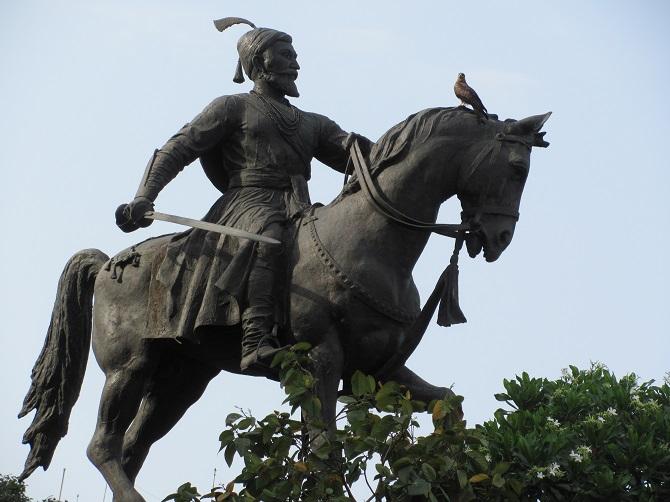
Shivaji in his brief rule of 30 years made an effort to revive Indian traditions.
He created a governing structure of 'Ashta Pradhan' or eight ministries on the lines of the ancient Indian system.
To re-establish Sanskrit, he commissioned a 'Rajya Vyavhar Kosh' or Indian terminologies in place of Farsi terms.
The title of Pradhan Mantri or prime minister -- routinely used to denote the head of the government of independent India -- is Shivaji's gift.
Aurangzeb was determined to 'Islamise' the whole of India as he believed in the Hadith about Gazwa e Hind (conquest of India).
As a part of this policy, Aurangzeb destroyed temples in Mathura and Kashi.
A campaign of forcible conversion of Hindus to Islam was implemented in the Kashmir valley.
Shivaji, however, chose not to respond to the religious bigotry of Aurangzeb, but instead followed the age-old Indian tradition of acceptance of the plurality of faith and belief.
Shivaji's greatest success was that while he fought the misrule of the Muslim sultans and emperors, he won over sizeable numbers of Muslims to his side.
His success in creating a 'Southern coalition' that included the Bahamani sultanate of Golconda, shows the success of his policy.
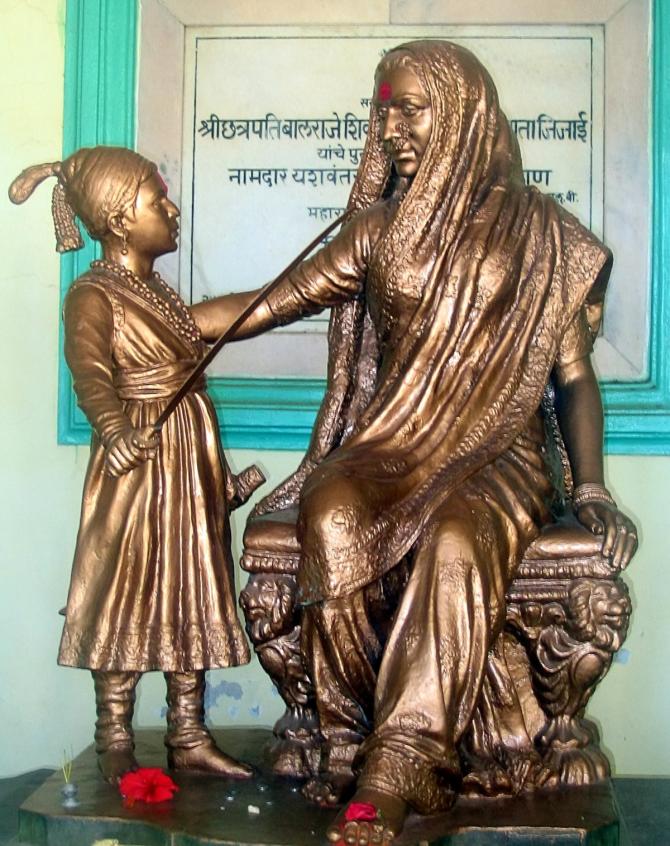
In a sense, Shivaji can be rightly called the founder of the modern secular State of India.
He ensured that in his domain Muslim shrines and people were well protected and treated equally.
Even Kafi Khan, the Mughal court historian who called him a 'robber king' and wrote, 'the Kafir has gone to hell' when news of Shivaji's death reached the Mughal court, admitted that Shivaji treated the Quran Sharif with respect and never touched mosques.
Aurangzeb had revived the hated jizya, a tax that had to be paid by non-Muslims.
As news of Aurangzeb's depredations reached him, in his letter to Aurangzeb, in a regretful tone, Shivaji wrote:
In this land, Muslims, Hindus, Christians, and other people have stayed together without any problem. Your own great-grandfather, Akbar, was well known for his tolerance and fairness to all faiths. Your imposing of this tax will lead to terrible hardships for poor people and your empire will not survive.
Quran is God's revelation and it does not make a distinction between god's children. In the mosque the Muslims give azaan and the Hindus ring bells in their temples, so what is the difference?
Such was the awe of Shivaji's military prowess that Aurangzeb never came down to Maharashtra till such time as Shivaji was alive.
It was only after Shivaji's death that Aurangzeb saw the opportunity to fulfill his dream of Gazwa E Hind by eliminating the Maratha resistance in the south.
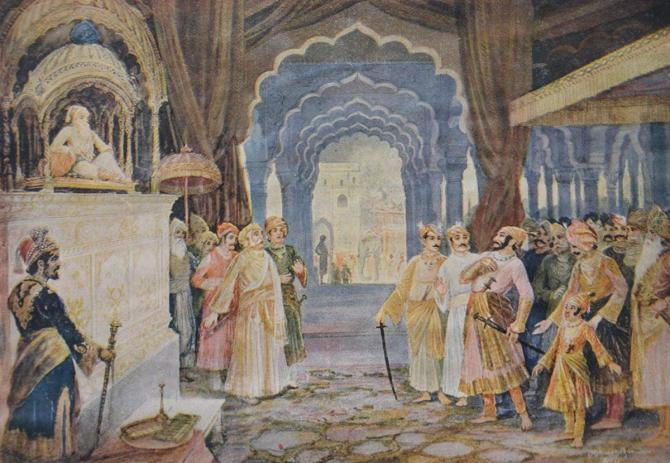
Aurangzeb stayed in Maharashtra from 1681 till his death in 1707. Aurangabad was his capital.
Interestingly, Aurangzeb, who had destroyed the Hindu temples of Mathura and Kashi and many others in the north, was a very different ruler when he came to Maharashtra.
Despite the fierce Maratha resistance to Mughals, he did not touch a single temple or religious place in Maharashtra.
Literally, a stone's throw from his capital at Aurangabad is located the ancestral village of Shivaji and the temple of Ghrishneshwar, among the 12 jyotirlinga of Shiva. Yet he did not touch it.
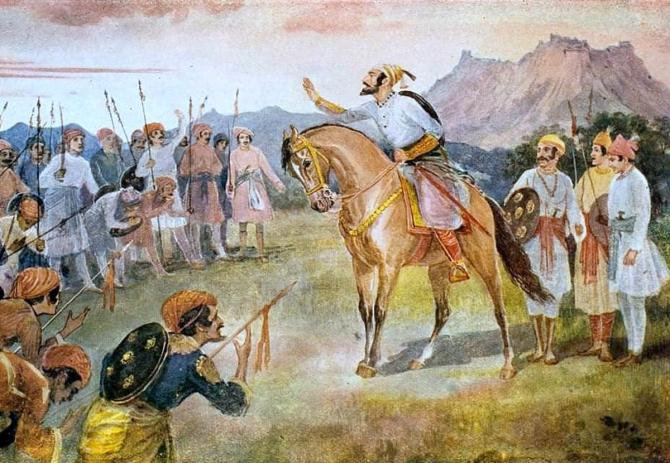
Maharashtra's major temples at Pandharpur, Kolhapur, and Tuljapur, all remained intact during the Mughal occupation.
Not only that, but towards the end of his life, Aurangzeb donated money to build a ceremonial gate to the Khandoba temple at Jejuri near Pune.
Was Aurangzeb trying to emulate Shivaji in his later years? If so, it was possibly the greatest triumph of Shivaji's statesmanship.
Military historian Colonel Anil A Athale (retd) is a former Chhatrapati Shivaji Chair Fellow at the United Services Institute of India.
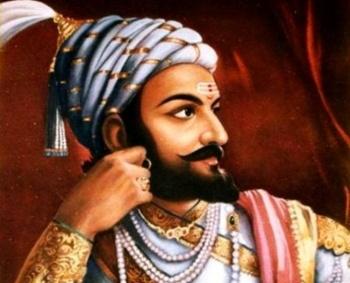
Feature Presentation: Rajesh Alva/Rediff.com
